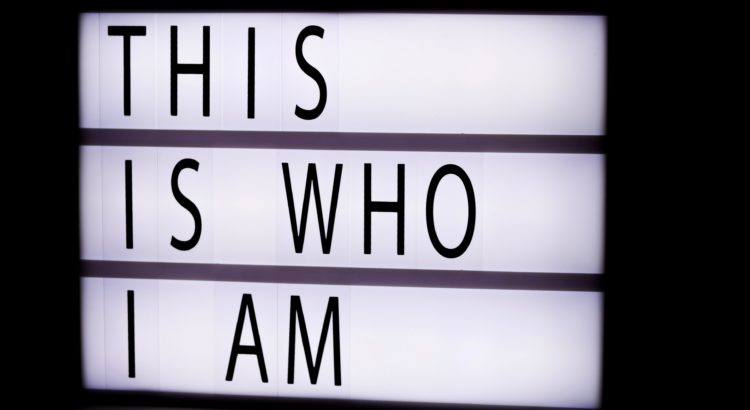(Level B1 and above: On the difference between who, whom, whose and who’s, with examples, video and exercise)
Written and compiled by Benedicte Gravrand, English trainer at The Language House in Geneva
Mark is a very demanding boss who pays attention to detail and knows exactly who’s who and who’s doing what.
What do you think of this formal reference letter?
To whom it may concern
Mark is a very demanding boss who pays attention to detail and knows exactly who’s who and who’s doing what. He does like how to show us who’s boss. He does not hesitate to fire those who give less than 150% to the company. Just the other day, he let go of someone in the accounts department, whose name I can’t remember, who had to work from home due to family problems. The company, whose market value has gone down this year due to inflation, is at the forefront of technology. The colleagues with whom I work are all extremely keen to give their best to Mark and the company. I don’t know anyone who comes to work late or who leaves early. Personally, I have worked closely with Mark, whom I have known for 20 years, and it has been the most intense experience of my life. Please do not hesitate to contact me for further information.
Yours truly,
B. Ambiguous
It uses a lot of who, whom, whose and who’s, right? Very strange. Let’s find out more:
When do we use who, whom, whose, and who’s?
Who is used to indicate a person, either as the subject (who did that?) or as the object of a verb or preposition (he took out a photo of his son, who he adores). Whom is only used when it is about the object; it is a formal “who” (he took out a photo of his son, whom he adores). Whose refers to who or what something belongs to (whose dog is it?)
These three words are typically used in questions and in relative clauses.
A relative clause, you say? In the sentence, “The winner was a Brazilian player, whose name I have forgotten,” there is a main clause (The winner was a Brazilian player) followed by a relative clause (whose name I have forgotten).
Simply put, relative clauses specify what we are talking about or just give extra information (in the latter case, the clauses are separated by a comma). Relative clauses often start with who, which or that.
And finally, who’s, is purely a contraction of “who is” or “who has”.
Here are more examples and phrases using who, whom, whose and who’s:
Who
- Question pronoun: Who killed John F. Kennedy? (“who” here is the subject, the one who does the action)
Who do you give the money to? (“who” here is the object, who does not do the action)
- Relative pronoun: The woman who spoke at the meeting was very knowledgeable. / She was with her husband, who I had already met.
Read more: Dr Who, the time traveller
The Who: Who are you?
Whom
- Question pronoun: To whom do you wish to speak?
- Relative pronoun: The book was written by his wife, Joan, whom he married in 1962 / I don’t know whom you’ve already met.
- Note: When used with a preposition, the preposition is in front. The man to whom you spoke at the school
- Note: In sentences like “the man with whom she lived works at this company”, you can omit (omettre) the relative pronoun: “the man she lived with works at this company.” Or: “The professor (whom) I respect received an award.” That’s when the relative pronoun acts as the object of a sentence.
Whose
(about possessions)
- Question pronoun: Whose is this jacket? / Whose garden do you think looks the nicest?
- Relative pronoun: They live in a house whose roof could collapse at any time.
- Note: usually followed by a noun.
Who’s
- Contraction of “who is”: Who’s this? / I know who’s coming later.
- Contraction of “who has”: Do you know who’s been invited to Claire’s dinner party?
Dr Who: Time Traveller
Phrases
- Who cares? ‘Won’t Terry be upset?’ ‘Who cares? He never thinks about anyone but himself.’ (I don’t care and no one else does.)
- To whom it may concern – at the beginning of a formal letter not written for anyone in particular.
- Whose side are you on? (you should support me, not the other(s))
- Who’s who – The guest list read like a regular who’s who (the most important people) of the fashion industry.
- Show someone who’s boss: to show someone that you have more power or authority than they have.
Video BBC English: ‘Who’, ‘whom’ and ‘whose’?
Your turn!
Fill in the blanks with who, whom, whose or who’s.
In three examples, the pronoun can be omitted.
- The woman … is standing there is a famous YouTuber.
- … car did they break?
- The boy … I met is a singer.
- The table … leg is broken is in the kitchen.
- Jane, … is my best friend, has just won the lottery.
- There are over 6,000 students, many of … come from overseas.
- … else did you tell the secret to?
- … did they choose as a leader?
- … the winner?
- Help is needed for families … homes were destroyed in the bombing.
- The writer … he described as talented has published a new novel.
- … prefers tea to coffee?
- The house … door is open is for sale.
- … has finished?
- We have to be very careful … we deal with.
- … . did they hire for the job?
- I recently talked to Michael Hall, … lectures in music at the university.
- The writer … wrote this book is my neighbour.
- … phone is lost?
- … fault is it that we are losing all this money?
- Tell me … you admire most.
- I’ve found a bunch of keys, but I don’t know … they are.
- We only employ people … already have computer skills.
- You are free to marry the man … you love.
- … been using my computer?
Answers:
- The woman who is standing there is a famous Youtuber.
- Whose car did they break?
- The boy (who/whom – but can be omitted here) I met is a singer.
- The table whose leg is broken is in the kitchen.
- Jane, who is my best friend, has just won the lottery.
- There are over 6,000 students, many of whom come from overseas.
- Whom (or who) else did you tell the secret to?
- Whom (or who) did they choose as a leader?
- Who’s the winner?
- Help is needed for families whose homes were destroyed in the bombing.
- The writer (who/whom – but can be omitted here) he described as talented has published a new novel.
- Who prefers tea to coffee?
- The house whose door is open is for sale.
- Who has finished?
- We have to be very careful who we deal with (or: with whom we deal).
- Whom (or who) did they hire for the job?
- I recently talked to Michael Hall, who lectures in music at the university.
- The writer who wrote this book is my neighbour.
- Whose phone is lost?
- Whose fault is it that we are losing all this money?
- Tell me whom (or who) you admire most.
- I’ve found a bunch of keys, but I don’t know whose they are.
- We only employ people who already have computer skills.
- You are free to marry the man (who/whom – but can be omitted here) you love.
- Who’s been using my computer?
Ideas from MyEnglishPages.com and MacmillanDictionary.com


